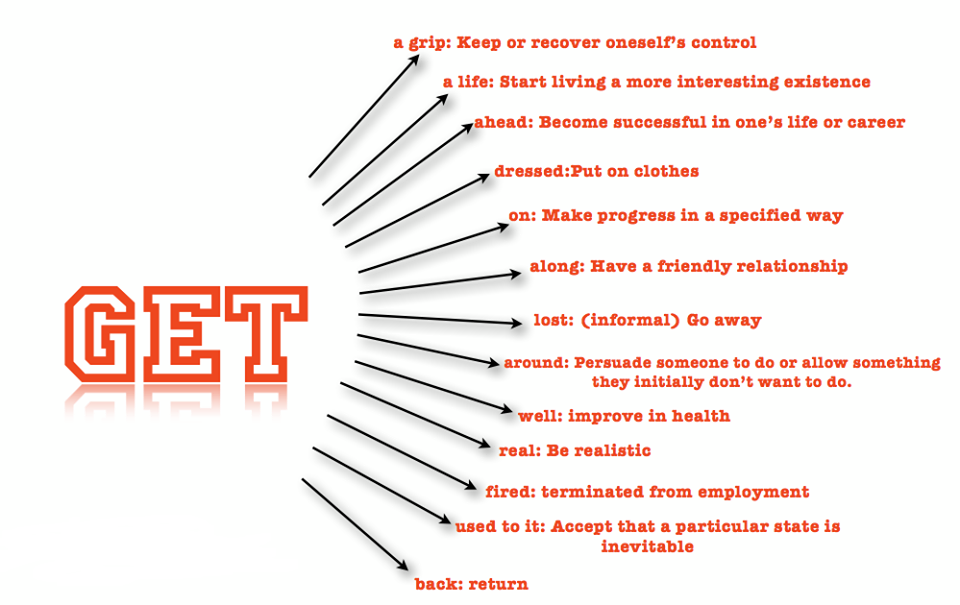Prerequisites for Bartending Licensing

Obtaining a bartending license requires meeting specific criteria, varying significantly by state or region. These prerequisites ensure that individuals working in establishments serving alcoholic beverages possess the necessary knowledge, skills, and character traits. Compliance with these requirements protects both the establishment and the public.
Successful application for a bartending license hinges on fulfilling all the stated prerequisites. This often includes a background check, specific training, and adhering to age restrictions. Different states have diverse requirements; therefore, it is crucial to consult the specific guidelines of the relevant state or region.
Required Documents
The necessary documentation for a bartending license application typically includes identification, proof of age, and potentially training certificates. The precise list may vary by jurisdiction. Common examples include a valid government-issued photo ID (driver’s license or passport), social security card, and proof of completion of any required training courses. Always verify the complete list of required documents with the relevant licensing authority in your region.
Educational Qualifications or Training Courses
Many jurisdictions mandate completion of a formal training course to acquire a bartending license. These courses typically cover topics such as responsible alcohol service, handling customer interactions, and state-specific regulations. Training materials frequently include modules on alcohol awareness, recognizing signs of intoxication, and conflict resolution. Successful completion of such training is often a prerequisite for the licensing exam.
Age Requirements
Minimum age requirements for obtaining a bartending license vary. This is a crucial criterion that aims to prevent underage consumption of alcohol. While the legal drinking age is often 21, bartending license requirements may sometimes have a higher age threshold, such as 21. Always verify the exact age requirement with the specific licensing board in your region.
Background Checks or Criminal Record Evaluations
Background checks are a common aspect of the licensing process. These evaluations serve to ensure the applicant has no prior criminal record that could pose a risk to public safety in the context of handling alcohol. The exact scope and procedures of the background check vary by state and local regulations. A clean criminal record is generally a requirement.
Licensing Requirements Across Different States/Regions
Licensing requirements for bartenders vary substantially between states. This difference arises from differing priorities and legal frameworks in each jurisdiction. Some states may emphasize specific training areas more than others. A thorough understanding of the specific requirements in the relevant state or region is essential for successful application.
Table of State-Level Requirements
| State | Required Courses | Exam | Minimum Age |
|---|---|---|---|
| California | Responsible Alcohol Service Training | State-administered Exam | 21 |
| Florida | Alcohol Awareness Training | State-administered Exam | 21 |
| New York | ServSafe Alcohol Certification | State-administered Exam | 21 |
| Texas | Texas Alcoholic Beverage Commission Training | State-administered Exam | 21 |
Note: This table provides examples; actual requirements may vary. Always consult the relevant state licensing authority for the most up-to-date information.
Applying for a Bartending License

Securing a bartending license involves a structured application process. Understanding the steps, required documents, and timelines is crucial for a smooth and successful application. This section provides a detailed overview of the application procedure.
Application Process Overview
The application process for a bartending license typically follows a series of steps. These steps are designed to ensure the applicant meets the necessary qualifications and complies with all relevant regulations. A thorough understanding of these steps is essential to a successful application.
Forms and Paperwork
The necessary paperwork for a bartending license application varies by jurisdiction. Generally, the application package includes: a completed application form, proof of identity (such as a driver’s license or passport), and any required certificates or transcripts. Some jurisdictions may also require a health certificate, a background check, or other specific documentation. It’s vital to consult the specific requirements of your local licensing authority.
Submitting the Application, How to get a bartending license
Submitting the application typically involves submitting the completed forms and required documents to the relevant licensing authority. Methods for submission often include mail, in-person drop-off, or electronic submission through an online portal. Contacting the licensing authority for guidance on submission procedures is highly recommended. Review the specific instructions from the licensing body.
Application Processing Timeline
The processing time for bartending license applications can vary. Factors such as the volume of applications, the complexity of the application, and the specific procedures followed by the licensing authority can influence the timeline. Some jurisdictions provide estimates, while others do not. Real-world examples vary widely, so always confirm the specific timeline with the relevant authority.
Examples of Application Forms
Examples of application forms are available from the licensing authority’s website. These forms typically include sections for personal information, contact details, employment history, and any required certifications. The format will vary between jurisdictions, so always refer to the specific form.
Application Flowchart

How to get a bartending license – This flowchart illustrates the typical application process, from initial preparation to final approval. It highlights key steps, enabling a clear understanding of the process. The exact steps may vary depending on the specific jurisdiction.
| Step | Description |
|---|---|
| 1. Gather Documents | Collect all necessary forms, certificates, and supporting documentation. |
| 2. Complete Application | Thoroughly complete the application form with accurate information. |
| 3. Submit Application | Submit the application to the licensing authority using the designated method. |
| 4. Processing | The licensing authority reviews the application and supporting documents. |
| 5. Approval/Rejection | The licensing authority approves or rejects the application. |
Bartending Exam Preparation: How To Get A Bartending License
Preparing for a bartending licensing exam requires a comprehensive understanding of various aspects of the profession. This involves mastering not only basic cocktail recipes and techniques but also regulations, safety protocols, and customer service. A well-structured study plan and targeted resources are key to success.
Exam Structure and Content
The bartending licensing exam typically assesses a candidate’s knowledge across several key areas. These include cocktail preparation, service protocols, responsible beverage service, and potentially local regulations. The format varies, but generally comprises multiple-choice questions, potentially some short-answer questions, and perhaps a practical demonstration. The specific content will be Artikeld by the licensing authority.
Common Exam Topics
Understanding the common exam topics allows for focused study. A thorough review of these areas significantly increases the likelihood of success. Key topics often include:
- Basic Cocktail Recipes: Knowing standard recipes for popular cocktails, including variations and substitutions, is essential. This encompasses ingredients, measurements, and preparation methods.
- Beverage Service Procedures: This involves proper glassware, garnishing, and presentation techniques, along with understanding customer service principles.
- Responsible Beverage Service: This crucial aspect emphasizes identifying signs of intoxication, refusing service to underage or intoxicated individuals, and understanding state or local regulations on underage drinking.
- Safety Procedures: This includes handling sharp objects, preventing spills, and adhering to all safety regulations.
- Handling of Money and Payment: Examining the procedures involved in handling cash, credit cards, and other forms of payment within the context of the establishment.
- Liquor Laws and Regulations: This section covers local and state laws pertaining to alcohol sales and service, including underage drinking laws and legal responsibilities.
Resources for Exam Preparation
A variety of resources can aid in effective exam preparation. This includes both official study materials and supplementary resources.
- Official Licensing Materials: The most reliable source is the official study guide or syllabus provided by the licensing authority. These materials often contain sample questions, Artikels of covered topics, and specific regulations relevant to the exam.
- Online Bartending Courses: Numerous online platforms offer comprehensive courses covering various aspects of bartending, including recipes, techniques, and responsible service practices. These courses often provide practice quizzes and exams.
- Industry Publications and Websites: Publications and websites dedicated to the beverage industry can offer helpful insights, industry news, and sample recipes.
- Local Bartending Associations: These associations may offer study materials, workshops, or practice opportunities.
Types of Exam Questions
Anticipating the types of questions can help tailor your study approach. Exam questions may range from factual recall to application-based scenarios.
- Multiple-choice questions: These questions assess knowledge of specific facts and concepts.
- Short-answer questions: These questions require candidates to apply their knowledge to specific scenarios.
- Practical demonstrations: In some cases, practical demonstrations might be included to evaluate candidates’ skills in preparing drinks and handling customer interactions. These are usually accompanied by a rubric for scoring.
Effective Exam Preparation Strategies
A well-structured study plan can significantly impact exam performance.
- Create a Study Schedule: Allocate specific time slots for studying different topics. This will help you cover all the necessary material systematically.
- Practice Regularly: Regular practice with mock exams and sample questions can enhance your understanding and identify areas requiring further attention.
- Focus on Weak Areas: If you identify areas where your knowledge is weak, dedicate more time to those topics. This will ensure that you are well-prepared for all parts of the exam.
- Seek Guidance: If needed, seek assistance from experienced bartenders, mentors, or study groups to clarify doubts and reinforce learning.
Comparing Study Materials
Different study resources may vary in approach and effectiveness. It’s advisable to evaluate the comprehensiveness, accuracy, and clarity of the resources.
- Official study guides often offer the most reliable and accurate information, tailored to the specific requirements of the licensing exam.
- Online courses may provide interactive learning experiences, including video tutorials and practice exercises.
- Books offer a comprehensive overview, often presenting a detailed approach to various aspects of the industry. However, ensure they’re up-to-date with the latest regulations and trends.
Understanding State Regulations

State regulations play a crucial role in ensuring the safety and responsible service of alcohol by licensed bartenders. These regulations Artikel the specific rules and guidelines that bartenders must adhere to, protecting both the patrons and the establishment. Understanding these regulations is essential for maintaining a compliant and successful career as a bartender.
State regulations dictate the minimum age requirements for serving alcohol, the procedures for verifying patron age, and the standards for responsible alcohol service. These regulations are vital in preventing underage drinking and promoting public safety. Failure to comply with these regulations can have serious legal and professional consequences.
Legal Implications of Violations
Violations of state regulations regarding alcohol service can lead to significant legal repercussions. Penalties can range from fines to the suspension or revocation of a bartender’s license. The specific penalties vary greatly from state to state, depending on the severity of the violation.
Responsibilities of Licensed Bartenders
Licensed bartenders have a duty to uphold the regulations established by their respective state. This includes adhering to the laws regarding the service of alcohol, preventing underage drinking, and recognizing signs of intoxication in patrons. Furthermore, bartenders must ensure compliance with any regulations concerning the storage and handling of alcohol within the establishment.
Penalties for Non-Compliance
Non-compliance with state regulations can result in a variety of penalties. These penalties can range from small fines for minor infractions to substantial fines and even imprisonment for more serious offenses. The severity of the penalty is often correlated with the nature and frequency of the violation.
State-Specific Regulations
State regulations for bartending licensing vary significantly. Factors like the specific laws concerning the service of alcohol, age verification procedures, and responsible alcohol service standards differ from state to state. Understanding these differences is critical for compliance.
Table of Common State Regulations
| Regulation | Description | Penalty |
|---|---|---|
| Minimum Serving Age | Establishes the minimum age for serving alcohol, often 21. | Fines, license suspension, revocation, possible criminal charges. |
| Age Verification Procedures | Specifies the methods for verifying the age of patrons, often requiring ID checks. | Fines, license suspension, revocation. |
| Responsible Alcohol Service | Artikels standards for recognizing and handling intoxicated patrons, including refusing service to visibly intoxicated individuals. | Fines, license suspension, revocation, possible criminal charges. |
| Storage and Handling of Alcohol | Details the regulations for the storage, handling, and dispensing of alcohol within the establishment. | Fines, license suspension, revocation, possible criminal charges. |
| Refusal of Service to Minors | Specifies the procedures for refusing service to underage individuals and documenting such refusals. | Fines, license suspension, revocation, possible criminal charges. |
Maintaining a Bartending License

Maintaining a valid bartending license is crucial for ensuring continued professional practice and upholding the safety and well-being of patrons. This involves adhering to specific regulations and requirements, which are essential for responsible service and maintaining public trust. Licensed bartenders must understand and actively engage with these guidelines to maintain their professional standing.
Maintaining a bartending license isn’t a one-time endeavor; it’s an ongoing commitment to professional development and adherence to regulations. The process involves renewal, compliance with requirements, and often, additional training to stay up-to-date on best practices. Failing to meet these standards can result in license revocation, which significantly impacts one’s career.
Renewal Process
The renewal process for a bartending license typically involves a timely submission of the necessary paperwork and payment of applicable fees. This often happens annually or biennially, depending on state regulations. It’s essential to stay informed about the specific timeline and requirements Artikeld by your state’s licensing board. This proactive approach helps prevent potential license lapses.
Requirements for Maintaining a Valid License
Maintaining a valid license hinges on several factors, including compliance with local regulations, adherence to legal standards, and a commitment to responsible service practices. These factors include avoiding any illegal activities while performing bartending duties. A clean record and adherence to local and state regulations are fundamental to maintaining a valid license.
Continuing Education Requirements
Continuing education is a significant component of maintaining a bartending license. It ensures that licensed bartenders remain current with the latest information regarding responsible service of alcohol, handling potential emergencies, and compliance with legal and regulatory updates. These courses often address topics like alcohol awareness, recognizing intoxicated patrons, and effective conflict resolution.
Examples of Professional Development Opportunities
Several professional development opportunities exist to support licensed bartenders in their ongoing education. These may include workshops, seminars, or online courses offered by professional organizations or state licensing boards. Specific topics might include advanced mixology techniques, customer service strategies, or understanding the effects of alcohol on different individuals.
Consequences of Failing to Renew a License
Failing to renew a bartending license within the stipulated timeframe can lead to serious consequences. This may include the temporary or permanent suspension or revocation of the license, potentially impacting employment prospects and the ability to practice. The specific consequences vary by jurisdiction. It’s advisable to review the relevant regulations to understand the specific implications of a lapsed license.
Timeline for the Renewal Process
A typical timeline for the renewal process generally starts several weeks or months before the license expiration date. This provides sufficient time to gather necessary documents, complete any required continuing education, and submit the application form.
- Application Submission: Submit the renewal application form well in advance of the license expiration date.
- Document Collection: Collect and prepare the required documents, such as proof of identity, payment information, and completion of any continuing education requirements.
- Payment: Ensure payment of applicable fees as stipulated by the state licensing board.
- License Renewal: The licensing board will process the application and issue the renewed license, usually within a specified timeframe.
Additional Information

Beyond pouring drinks, bartending involves a multifaceted role encompassing customer service, safety, and legal compliance. Understanding these responsibilities is crucial for maintaining a professional and responsible establishment. This section delves into the expanded duties of a bartender and the legal and ethical considerations associated with alcohol service.
Bartenders are more than just drink dispensers; they are crucial members of the service team, interacting directly with patrons and ensuring a positive experience. Their actions significantly influence the overall atmosphere of the establishment and contribute to its reputation.
Bartender Roles and Responsibilities Beyond Serving Drinks
Bartenders play a critical role in maintaining a safe and enjoyable environment for all patrons. Their duties extend beyond simply preparing drinks, encompassing aspects like customer interaction, conflict resolution, and upholding safety standards. Proactive communication and attentive observation are key elements of this broader role.
- Maintaining a safe environment: Bartenders are responsible for observing patrons’ behavior and identifying potential issues, such as signs of intoxication or inappropriate conduct. This includes intervening when necessary to prevent escalation of conflicts or other hazardous situations.
- Preventing underage drinking: Bartenders have a legal and ethical obligation to verify the age of patrons ordering alcoholic beverages. This duty requires using proper identification checks and adhering to all relevant state regulations.
- Handling intoxicated patrons: Recognizing and appropriately addressing intoxicated patrons is a vital aspect of a bartender’s role. This includes politely refusing service, encouraging the patron to seek alternative transportation, and connecting them with support services if needed.
- Providing excellent customer service: Bartenders are customer service representatives. This involves responding to customer inquiries and complaints in a timely and professional manner. Maintaining a welcoming and engaging demeanor can enhance customer satisfaction and foster positive relationships.
Importance of Responsible Alcohol Service
Responsible alcohol service is not just a best practice; it’s a legal and ethical imperative. It safeguards both the establishment and its patrons from potential harm and legal repercussions.
- Reducing intoxication-related incidents: By implementing responsible service practices, bartenders can contribute to a significantly safer environment, minimizing incidents of intoxication, violence, and accidents.
- Protecting patrons from harm: Responsible alcohol service directly protects patrons from the dangers of excessive alcohol consumption, ensuring their well-being and safety.
- Maintaining a positive reputation: A reputation for responsible alcohol service fosters trust and goodwill with patrons, creating a positive image for the establishment and the bartenders who work there.
Legal Responsibilities for Preventing Underage Drinking
Bartenders have a legal obligation to prevent underage drinking. Failure to comply with these regulations can lead to significant penalties for both the bartender and the establishment.
- Strict identification verification: Using appropriate identification methods is critical for verifying the age of patrons ordering alcohol. This includes checking driver’s licenses or other state-issued IDs.
- Refusal of service to underage patrons: Bartenders must consistently refuse service to anyone who appears to be underage. This requires vigilant observation and adherence to the specific laws of their state.
- Maintaining accurate records: Maintaining detailed records of identification checks can serve as proof of compliance in the event of an audit or investigation.
Common Scenarios Requiring Responsible Judgment Calls
Bartenders frequently face situations demanding sound judgment and quick thinking.
- Recognizing signs of intoxication: Recognizing signs of intoxication is crucial for implementing responsible service protocols. This includes slurred speech, unsteady gait, and erratic behavior.
- Handling intoxicated or disruptive patrons: Bartenders must be prepared to handle disruptive or intoxicated patrons calmly and professionally. This involves politely refusing further service, offering alternative options, and contacting security personnel when necessary.
- Addressing complaints and conflicts: Effective conflict resolution skills are essential for managing complaints and conflicts that may arise. This involves listening attentively, remaining calm, and seeking appropriate solutions.
Dealing with Intoxicated Patrons
Addressing intoxicated patrons requires a measured and professional approach. The goal is to ensure the patron’s safety and prevent further harm.
- Offering assistance: Offering help, such as suggesting alternative transportation options or connecting the patron with support services, is key to a safe resolution.
- Avoiding confrontation: Remaining calm and avoiding confrontations with intoxicated patrons is crucial for de-escalating potentially volatile situations.
- Seeking assistance when necessary: Knowing when to involve security personnel or other support staff is essential for ensuring the safety of the patron and other patrons.
Zero Tolerance Policies in Various States
Many states have “zero tolerance” policies regarding alcohol service to minors. These policies underscore the seriousness of underage drinking violations and the legal repercussions for non-compliance.
- Variations in state regulations: Specific regulations and penalties for violating “zero tolerance” policies vary across states. It’s critical to familiarize oneself with the precise laws governing alcohol service in your state.
- Consequences of non-compliance: Failure to adhere to zero-tolerance policies can result in severe penalties, including fines, license suspension, or even criminal charges.
- Importance of staying informed: Regularly reviewing and updating knowledge of state regulations regarding alcohol service is essential for bartenders.
Licensing Resources
Securing a bartending license involves navigating various resources. Understanding the available support systems is crucial for a smooth and successful application process. This section details essential government and professional resources to help you on your journey.
Government Websites for Licensing Information
Locating accurate and up-to-date information on bartending licensing is vital. State and local government websites are the primary sources for this information. These websites typically contain details on application procedures, required documents, and exam specifications.
- State Alcoholic Beverage Control (ABC) Agencies: Many states utilize ABC agencies to regulate alcohol sales and licensing. These agencies are a central hub for bartending license information, providing application forms, regulations, and exam details.
- State Liquor Control Boards: In some jurisdictions, liquor control boards handle licensing matters for alcohol-related professions. These boards are valuable resources for specific rules and regulations governing bartending licenses.
- County or Municipal Government Sites: Local regulations might also affect bartending licenses, particularly in areas with specialized ordinances. County or municipal websites can provide local regulations.
Contact Information for State Licensing Boards
Direct communication with the relevant licensing board is often necessary for clarification and guidance. Contact information can typically be found on the agency’s website.
| State | Licensing Board | Contact Information |
|---|---|---|
| California | Department of Alcoholic Beverage Control (ABC) | (916) 657-7500 |
| New York | New York State Liquor Authority (SLA) | (518) 474-8392 |
| Texas | Texas Alcoholic Beverage Commission (TABC) | (512) 463-2000 |
Note: Contact information is subject to change; always verify the most current details on the official website.
Reputable Online Resources
Online resources can supplement official government information, offering various perspectives and potential insights.
- Professional Bartending Organizations: Many organizations dedicated to the bartending profession provide valuable resources, such as articles, FAQs, and discussion forums. These resources offer industry insights and can help with exam preparation.
- Online Bartending Forums and Communities: Online forums and communities can provide peer-to-peer support and shared experiences. These platforms often contain practical advice and insights from licensed bartenders.
Professional Bartending Associations
Joining professional bartending associations can provide a network of support, access to resources, and potential career advancement opportunities.
- National Bartenders Association: The National Bartenders Association (NBA) is an example of a national association dedicated to supporting bartenders. Membership provides access to networking opportunities and educational resources.
- State-Level Bartender Associations: Many states have their own bartending associations. These local organizations can provide valuable networking opportunities and support.
Bartending Schools and Training Programs
Bartending schools or training programs offer structured education and practical experience, enhancing your knowledge and skills.
- Local Community Colleges or Universities: Some community colleges or universities may offer courses or certificate programs related to hospitality and bartending.
- Private Bartending Schools: Many private schools or training facilities specialize in providing bartending education and certification programs.
Finding Reliable Resources
Credibility is paramount when seeking licensing information. Always prioritize official government websites and reputable organizations. Cross-referencing information from multiple sources can further confirm accuracy. Seek out verified professional resources, avoiding potentially misleading or inaccurate sources.
User Queries
What are the typical fees associated with obtaining a bartending license?
Fees vary by state and can include application fees, exam fees, and background check costs. Check with your state’s licensing board for precise details.
How long does the application process typically take?
Processing times for applications can range from a few weeks to several months, depending on the state and volume of applications. Be sure to plan accordingly.
What are some common reasons for application rejection?
Incomplete or inaccurate applications, failing background checks, or not meeting age requirements are potential reasons for rejection. Thoroughly review all requirements before submitting.
Are there any continuing education requirements after obtaining a bartending license?
Yes, many states require continuing education to maintain a valid bartending license. These requirements usually include courses related to responsible alcohol service and legal updates.